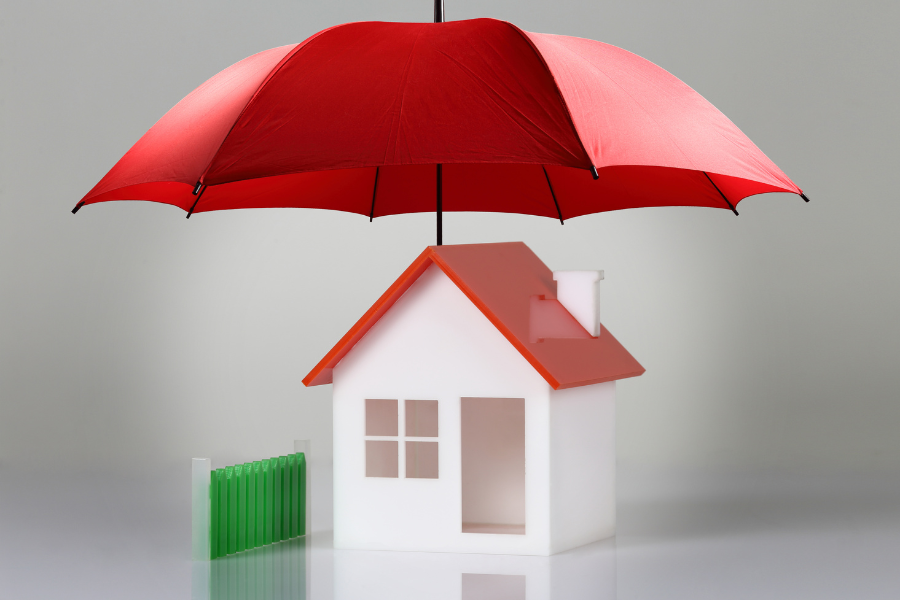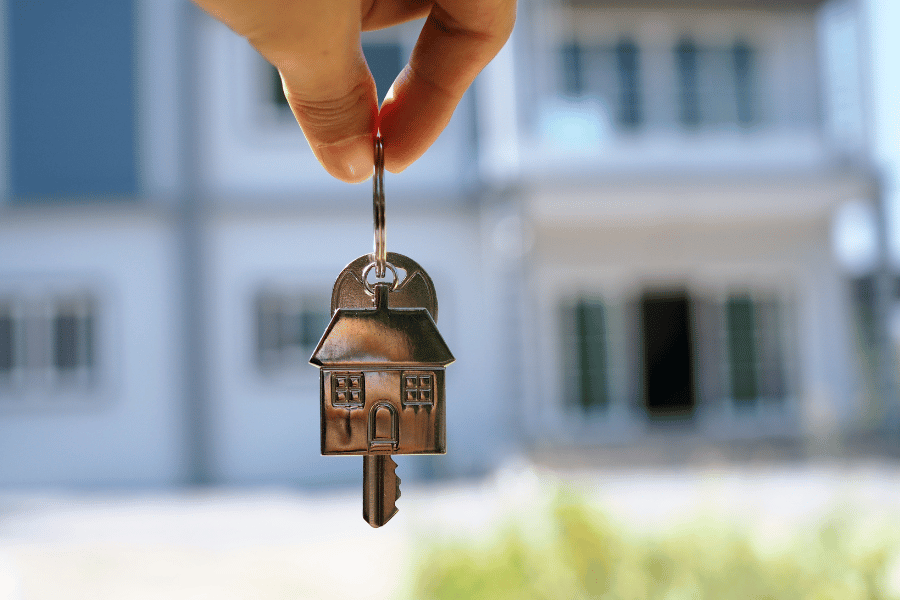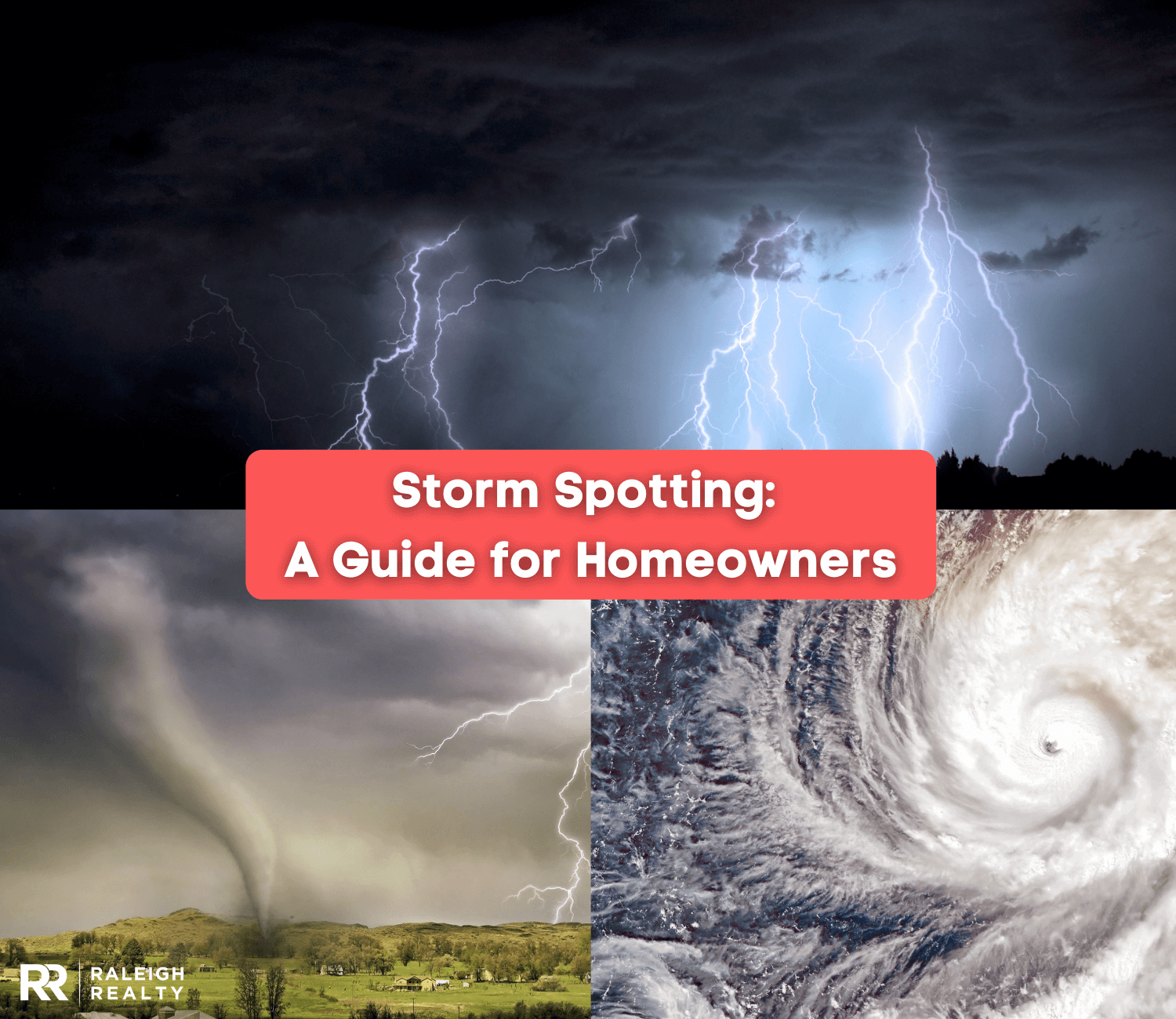How Much Does Homeowners Insurance Cost? [2024]
July 22nd, 2024
![How Much Does Homeowners Insurance Cost? [2024]](https://raleighrealtyhomes.com/storage/blogs/July2024/tz2Wb8QOE1Z5cGEUB5Rj.png)
How Much Does Homeowners Insurance Cost? [2024]
Are you wondering about the cost of homeowners insurance in 2024? Here's everything you need to know about homeowners insurance and its associated costs.
Homeowners insurance is essential when buying a home. Unexpected situations often arise during homeownership, so it's important to understand your coverage. Whether you're starting your home search or owning a house, you should understand the most critical elements of homeowners insurance.
Most homeowners should purchase home insurance even if their mortgage lender does not require it. Many mortgage lenders mandate homeowners insurance to protect themselves financially, but home insurance is also one of the best ways to safeguard your investment.
Even if you can't afford to rebuild or replace all your possessions in the event that your home is destroyed or robbed, homeowners insurance is an inexpensive way to avoid having to pay many substantial out-of-pocket expenses. Owning a home is a significant investment that you should always protect.
Homeowners insurance will give you that protection and save you a lot of money in the long run. Keep reading to learn more about homeowners insurance and all the costs that go into it.
Here is everything you should know about homeowners insurance costs.
Chapters
1. What is Homeowners Insurance?
A typical standard homeowners insurance policy provides coverage to repair or rebuild your home after damage from smoke, fire, theft, vandalism, falling trees, weather events, and other things. Homeowners insurance can also pay for alternate food and lodging if you need to move out while repairs are being made.
In addition to the primary structure, standard policies typically cover heating and cooling systems, appliances, furniture, clothing, and other personal belongings. Guest medical and liability coverage is also included to protect you if a visitor is injured there.
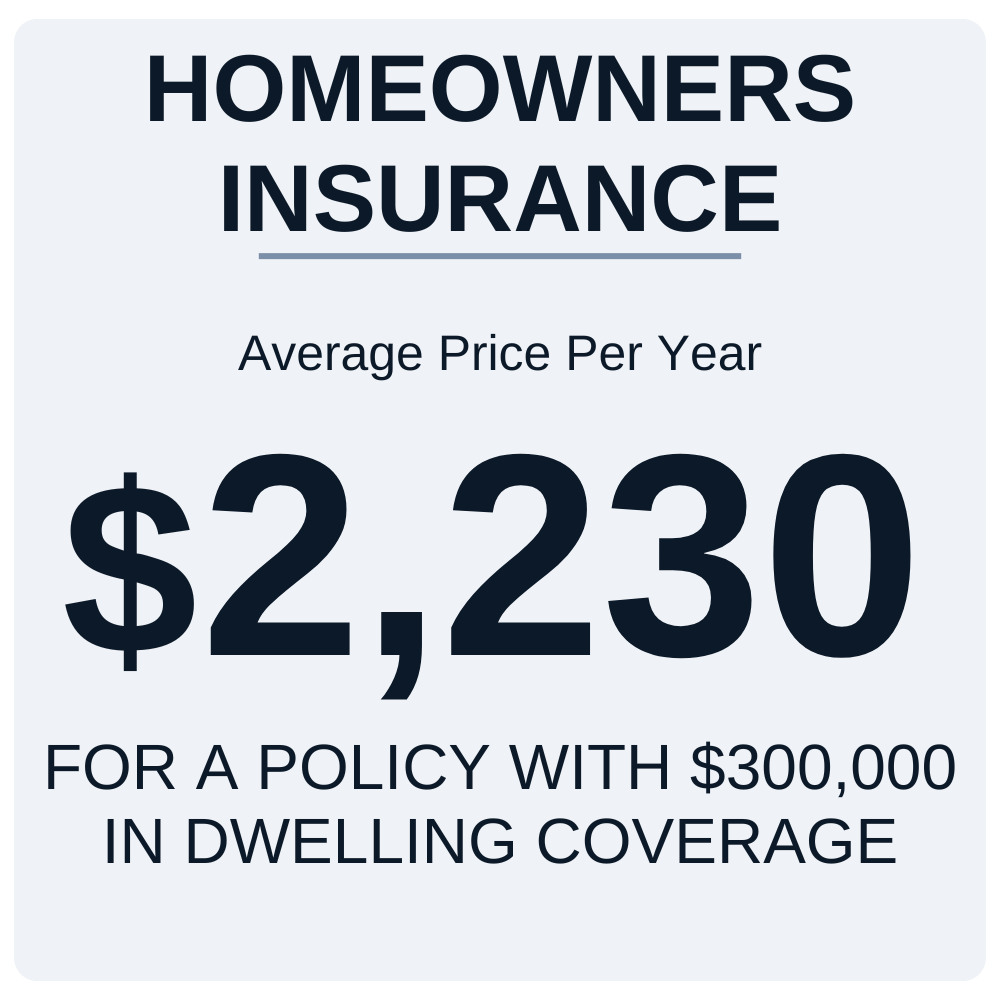
Most standard policies include coverage for a detached garage, shed, or other outbuilding or a permanent structure like outdoor fireplaces, pools, fences, or walls. It is important to know that homeowners' insurance is not the same as home warranty coverage.
2. How Much Does a Homeowner Insurance Policy Cost?
Based on data, the national average homeowner's insurance cost is about $2,230 per year, which is about $186 a month, for a policy with $300,000 in dwelling coverage. However, insurance is not all the same. Coverage and costs vary based on many factors, such as your home location.
Home insurance costs can majorly impact your budget if you are a homeowner, stretching well over $2,300 annually, depending on the policy and where you live. The best homeowner insurance protects your biggest assets, your home, and your belongings, and there are ways to save on home insurance.
Below is a chart with the average cost per home based on homeowners insurance dwelling coverage amounts. Remember that these numbers are not exact and will vary per person and circumstance.
| Homeowners Insurance Dwelling Coverage Amount | National Average Cost per Year |
| $200,000 | $1,150 |
| $350,000 | $1,678 |
| $500,000 | $2,212 |
| $750,000 | $3,068 |
Sourced from Forbes Advisor.
3. How Much Does Homeowner Insurance Cost Per State?
The average cost of homeowners insurance varies depending on where you live. People in states with more claims due to catastrophic weather, high crime rates, or elevated repair costs will see higher prices for home insurance.
Here is an overall chart of all the states' annual average costs. They do vary, so just use this number as an estimation.
| Alabama: $1,915 | Alaska: $1,160 | Arizona: $2,135 | Arkansas: $3,355 | California: $1,250 |
| Colorado: $3,820 | Connecticut: $1,575 | Delaware: $860 | Florida: $2,625 | Georgia: $2,345 |
| Hawaii: $515 | Idaho: $1,510 | Illinois: $2,060 | Indiana: $1,975 | Iowa: $2,215 |
| Kansas: $3,570 | Kentucky: $2,190 | Louisiana: $2,240 | Maine: $1,075 | Maryland: $1,700 |
| Massachusetts: $1,545 | Michigan: $1,785 | Minnesota: $2,375 | Mississippi: $3,475 | Missouri: $2,905 |
| Montana: $2,605 | Nebraska: $4,135 | Nevada: $1,290 | New Hampshire: $1,000 | New Jersey: $1,150 |
| New Mexico: $1,595 | New York: $1,715 | North Carolina: $1,975 | North Dakota: $2,445 | Ohio: $1,390 |
| Oklahoma: $5,495 | Oregon: $1,255 | Pennsylvania: $1,410 | Rhode Island: $2,070 | South Carolina: $2,250 |
| South Dakota: $2,810 | Tennessee: $2,435 | Texas: $4,400 | Utah: $1,140 | Vermont: $870 |
| Virginia: $1,445 | Washington: $1,225 | West Virginia: $1,600 | Wisconsin: $1,300 | Wyoming: $1,555 |
The overall cheapest states for homeowners insurance are:
- Hawaii: $515 a year or about $43 a month
- Delaware: $860 a year or about $72 a month
- Vermont: $870 a year or about $73 a month
- New Hampshire: $1,000 a year or about $83 a month
- Maine: $1,075 a year or about $90 a month
The most expensive states for homeowners insurance are:
- Oklahoma: $5,495 a year or about $458 a month
- Texas: $4,400 a year or about $367 a month
- Nebraska: $4,135 a year or about $345 a month
- Colorado: $3,820 a year or about $318 a month
- Kansas: $3,570 a year or about $298 a month
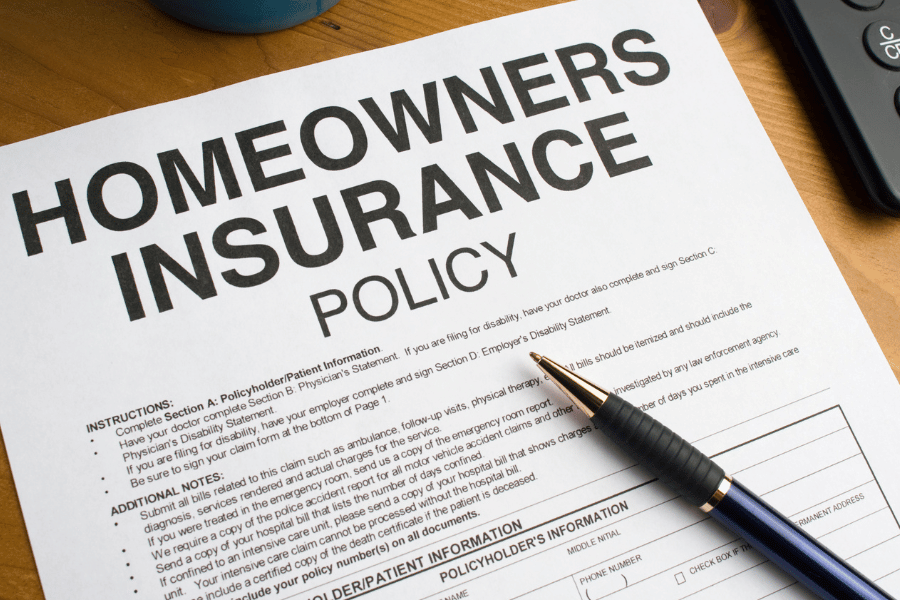
4. Cost Per Company
Along with location, the provider and coverage limits you select can significantly impact your homeowner's insurance rates. Your dwelling coverage determines the amount your provider will pay to repair your property after a covered loss.
Many providers require you to insure your property for 80% to 100% of its replacement cost. Below are some of the highest-ranking home insurance companies and their national average premiums.
| Company | Average Annual Cost | Average Monthly Cost |
| State Farm | $1,935 | $161 |
| Travelers | $2,010 | $168 |
| Allstate | $2,205 | $184 |
| Nationwide | $2,270 | $189 |
| Farmers | $2,415 | $201 |
| USAA* | $1,875 | $156 |
*USAA homeowners insurance is available only to active-duty military, veterans and their families.

5. Factors That Impact Home Insurance Rates
Your state, city, and even your neighborhood can affect the cost of your home insurance premium. Location is just one of many other factors that you should consider when determining your rates. Below are other factors you need to consider.
Claims History
When you file a claim for a covered loss, your insurance companies could pay for most or all the damages. However, filing the claim will likely increase your rates at renewal. Even if you switch companies, most insurers review the past 5-7 years of your claim history and will charge higher rates. Here is how much, on average, you will pay if you recently filed one of the three most common claims:
- Wind/Hail: $2,958
- Fire/Lightning: $3,334
- Water Damage/Freezing: $3,221
Credit Score
Your creditworthiness affects your home insurance premiums. In most states, insurance companies can check your credit-based insurance score, which references portions of the credit score that lenders calculate to help insurance providers calculate your relative risk for filing claims.
Here are some averages you can expect based on your credit score:
- Poor Score: $9,855
- Good Score: $2,828
- Excellent Score: 42,007
Risks:
If you are having trouble insuring your home, it is probably considered high risk by most insurance companies. Providers consider a variety of factors about the house and homeowners to determine the overall risk level. Some risks can be:
- Location: Your home is in an area of elevated risk for property crime or natural disasters
- Condition: A property that has structural issues or is in disrepair is a red flag
- High-Risk Features: Having a pool, trampoline, or other risky features can increase premiums or be denied coverage
- Age: If you have a historical home with older architectural features or its roof is more than 20 years old
- Vacancy: A home that is rarely used can be more susceptible to property crime or undetected maintenance issues that lead to damage
- Aggressive Pets: If your dog is aggressive or has a history of biting, it will increase your perceived risk. Some insurers will not insure breeds that are seen as aggressive, as well
- Excessive Claims History: Filing a claim will increase your premium, and several claims can cause you not to be renewed by a carrier and have trouble finding one that will
- Home-Based Businesses: Depending on the kind of business you run from your home, the high-value business equipment and assets could present increased risk
- Low Credit Score: In most states, insurers use elements of your credit history to determine high-risk profiles.
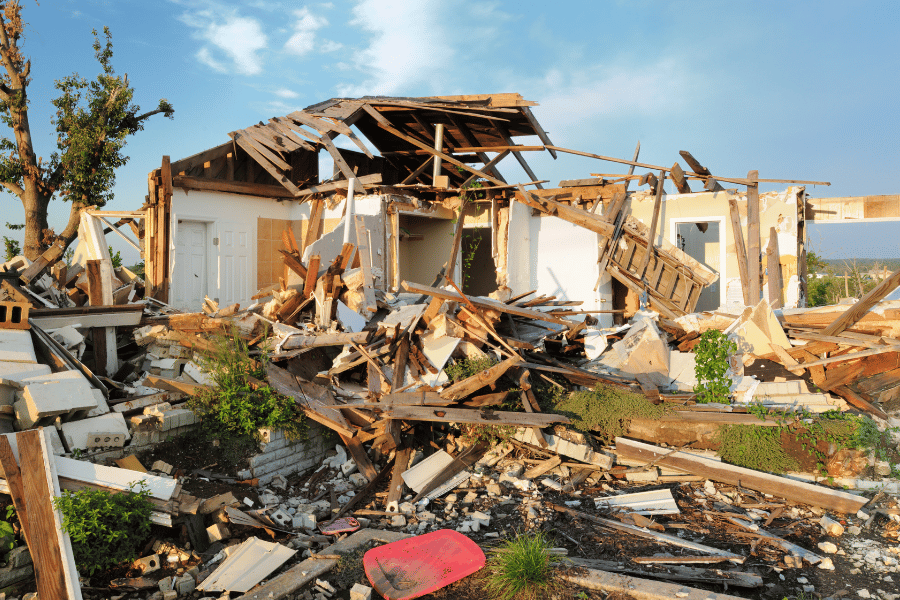
Dwelling Age
Due to accumulated years of wear and tear on older homes' structures, foundations, plumbing, electrical, and other systems, they are more likely to have issues than newer homes. When making the repairs, bringing outdated structures up to modern codes can be complicated and expensive. Insurance companies equate older homes with an increased risk of filing a claim.
The ages of roofs are also important. A home's roof is its first line of defense against weather events, so you'll get lower home insurance premiums for a new roof rather than an old one. Here are some average annual premiums due to the age of your home.
- < 1 Year: $1,788
- 45 Years: $3,125
- 75 Years: $3,110
Insurance Deductible
All home insurance policies have a deductible, the portion of covered losses that the policyholder is responsible for paying before policy benefits kick in. Choosing a higher deductive removes risk from your insurer, reduces your premiums, and increases your out-of-pocket cost if damages occur. A lower deductive increases your monthly cost but minimizes your financial risks during a loss.
Methodology
We used information and data from several different sources as well as our own data to create this guide about how much homeowners insurance costs. Most of the data was sourced from the following sources:
- U.S. News
- Forbes Advisor
- National Association of Realtors
- Insurance Information Institute
- Nerd Wallet
Above are a few sources that we used to gather most of our information about understanding homeowners insurance and the cost.

FAQS
Are home insurance rates going up in 2024?
Yes, according to 2024 Insuring the American Homeowner report, some coastal areas and inland locals can see a double-digit percentage rise this year. Places like Florida, Louisiana, and Oklahoma are expected to see the highest spikes in the country.
Why are homeowners insurance going up so much?
The increase in supply chain issues and the cost of building materials due to inflation are raising home insurance premiums everywhere. Increases in the price of labor and construction materials, as well as high inflation, are the primary reasons why rates have been increasing since 2020.
What is the 80% rule in homeowners insurance?
This rule suggests that you insure at least 80% of its total replacement cost as a guideline to avoid penalties and additional expenses should an issue arise. Your insurance agent can help you determine how to get 80% coverage by asking qualifying questions.
How Much Does Homeowners Insurance Cost? [2024] - The Bottom Line
While you have little control over some factors, such as your home's age, location, and risk, we can offer you some tips to save money on your home insurance premiums. When choosing a plan, understanding what your insurance policy covers and how to lower monthly costs is essential.
Soaring premiums have been a major challenge for homeowners across the US. Insurance rates have increased by almost 20% since 2021, and the price increases aren't showing any signs of stopping. Analysts predict a 6% jump in the coming year.
Choosing the best homeowner's insurance policy for your family's needs involves considering many factors. There are many choices to make, and each company will offer different rates, each with its own set of benefits and drawbacks.
Owning a home is a significant financial commitment, and we want to ensure you have the knowledge to protect your most valuable asset while saving as much money as possible. Understand the overall cost and the factors that affect it, and find the best insurer for your specific circumstances.
If you are considering moving or selling, contact us or visit our website. Our team at Raleigh Realty is here to help you with any home buying or selling needs.

Ryan Fitzgerald
Hi there! Nice to 'meet' you and thanks for visiting our Raleigh Real Estate Blog! My name is Ryan Fitzgerald, and I'm a REALTOR® in Raleigh-Durham, NC, the owner of Raleigh Realty. I work alongside some of the best Realtors in Raleigh. You can find more of my real estate content on Forbes, Wall Street Journal, U.S. News and more. Realtor Magazine named me a top 30 under 30 Realtor in the country (it was a long time ago haha). Any way, that's enough about me. I'd love to learn more about you if you'd like to connect with me on Facebook and Instagram or connect with our team at Raleigh Realty. Looking forward to connecting!
Related Blogs
